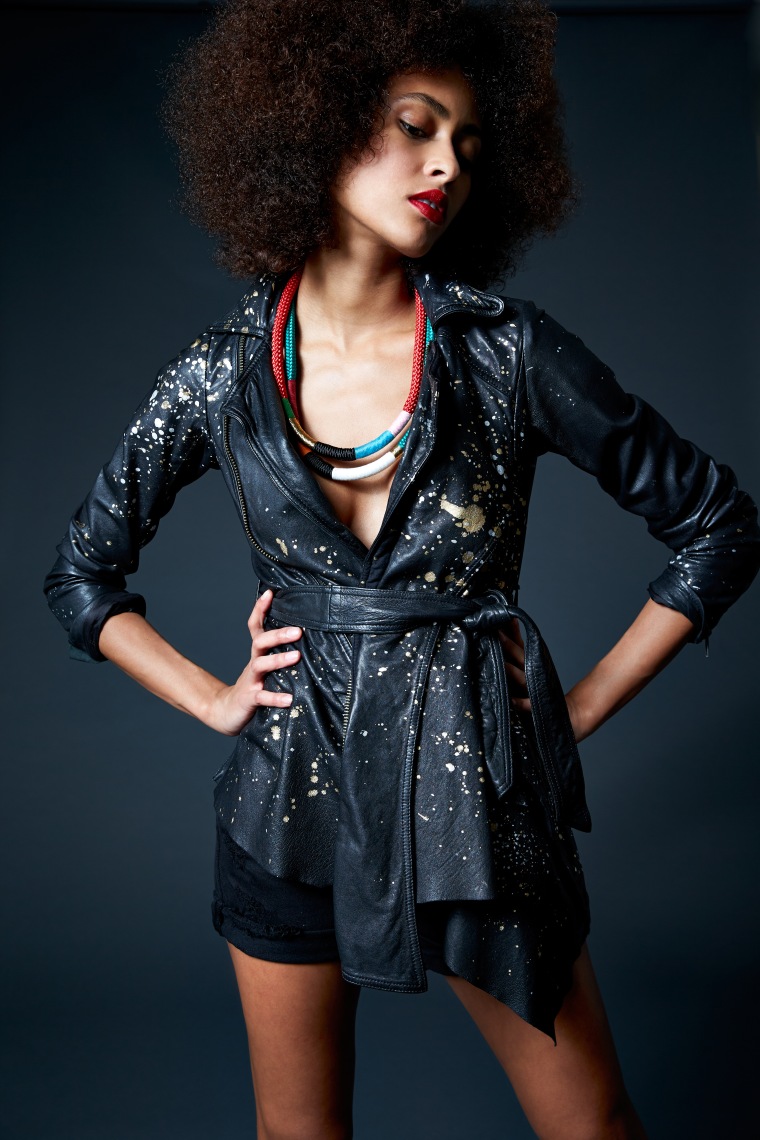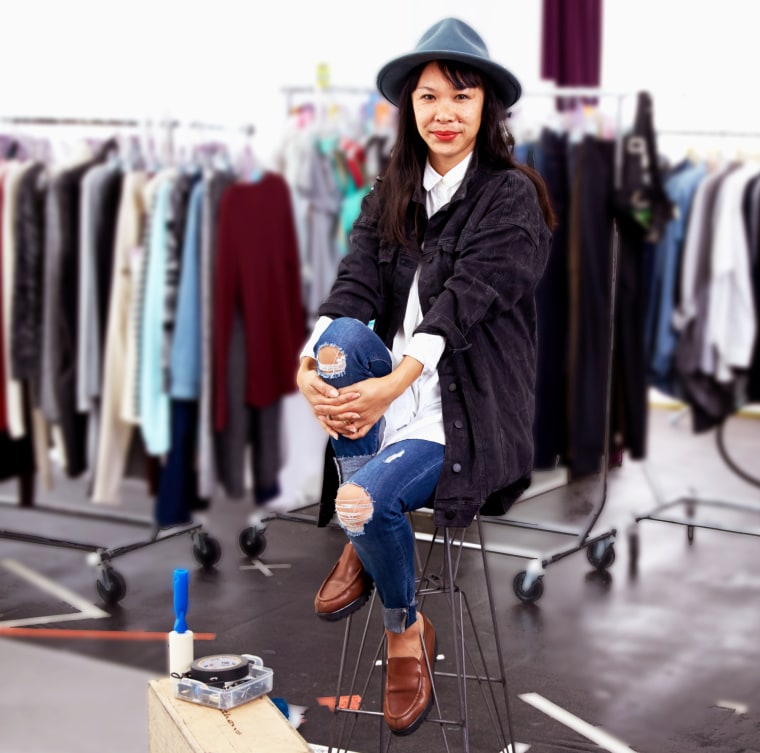After many years as a stylist, Mai-Lei Pecorari knows a thing or two about the power of clothing to create a transformation. In an industry notorious for wreaking havoc on the people and the planet, the veteran stylist is making a transformation of her own into the ethical fashion movement.
Her clothing line, Kin-tsugi Goods, contains handmade pieces with upcycled garments and garnished with gold accents, and, she says, is deeply influenced by her Taiwanese heritage.
"I am still connecting more and more to my heritage by understanding my history."
“I have an innate, spiritual connection to my heritage," Pecorari, who was raised in a bi-cultural household to an immigrant Taiwanese mother and a second-generation Italian stepfather, told NBC News. "It doesn’t manifest in material forms but rather in things like my systematic way of doing things, a need for order in all of my processes--both creative and functional--and the overarching Eastern belief that we are all one energy and connected to everything that lives and breathes on this planet.”
"Kintsugi" comes from an ancient Japanese ceramic art form in which broken pottery pieces are put back together with seams of lacquer mixed with pure gold. The intention is to make the repaired object more beautiful than its original form.

The Japanese technique serves as Pecorari’s inspiration behind Kin-tsugi Goods. For each design, she begins by sourcing vintage pieces, along with gently worn modern pieces, then reworks them to turn the garment into "wearable art." Now, in the third season of producing her collection, Pecorari maintains a gold accent as the literal common thread woven through her creations.
“If we embrace the philosophy of less is more, and valuing longevity, I know there is the potential to create a sustainable future."
Kin-tsugi Goods is sold exclusively at Eden & Eden in San Francisco, where each delivery is nearly sold out each time. Pecorari, who moved to the Bay Area in 1999, says being immersed in the vibrant diversity and artistic energy of the local community also helped her experience the beauty of "Asian America" to the fullest.
“In that city, it was the beginning of new friendships where I was making connections through spoken and unspoken understandings specific to what it was like have almond shaped eyes, straight black hair, and a name that very few could pronounce correctly on the first try. To this day, I am still connecting more and more to my heritage by understanding my history,” Pecorari said.

She adds that her time and experience as a stylist in the fast fashion industry has helped her recognize that it is time to take new steps. “What I have witnessed in the fashion industry, particularly fast fashion, is only one microcosm of the larger issue pertaining to the destructive approach mass consumption creates,” Pecorari said.
The fashion industry is one of the major sources of pollution in the world, coming only second to oil, according to "The True Cost," a recent documentary on the impact of fashion on the planet.
In her own way, however large or small, Pecorari hopes to contribute to a space in the fashion industry that respects the gentle process of creating lasting, beautiful things that are in harmony with the people and the environment. She also hopes that there will be a new founded respect for handmade, bespoke values of the past.
“If we embrace the philosophy of less is more, and valuing longevity, I know there is the potential to create a sustainable future," she said.
